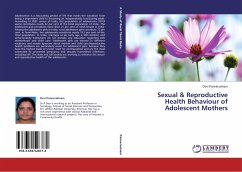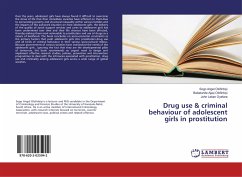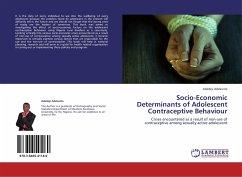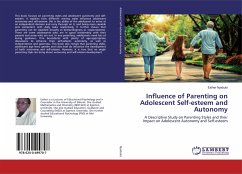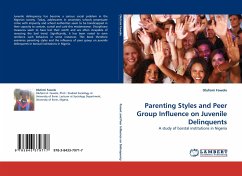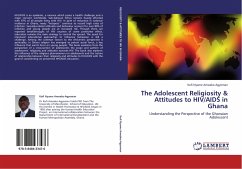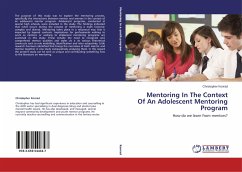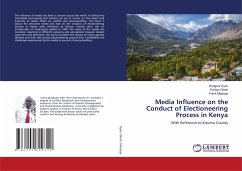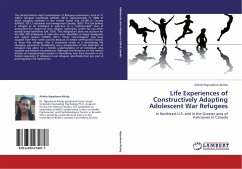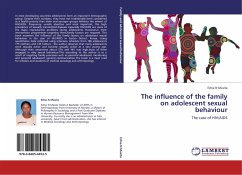
The influence of the family on adolescent sexual behaviour
The case of HIV/AIDS
Versandkostenfrei!
Versandfertig in 6-10 Tagen
32,99 €
inkl. MwSt.

PAYBACK Punkte
16 °P sammeln!
In most developing countries adolescents form an important demographic group. Despite their numbers, they have not traditionally been considered as a health priority than older and younger groups hitherto the advent of HIV/AIDS. Pregnancy, unsafe abortion and most important, the high prevalence of sexually transmitted diseases especially HIV/AIDS are some of the major reproductive problems facing adolescents. However,in most intervention programmes targeting them,family factors are negated. This book examines the influence of the family factors on adolescent sexual behaviour in the case of HIV...
In most developing countries adolescents form an important demographic group. Despite their numbers, they have not traditionally been considered as a health priority than older and younger groups hitherto the advent of HIV/AIDS. Pregnancy, unsafe abortion and most important, the high prevalence of sexually transmitted diseases especially HIV/AIDS are some of the major reproductive problems facing adolescents. However,in most intervention programmes targeting them,family factors are negated. This book examines the influence of the family factors on adolescent sexual behaviour in the case of HIV/AIDS in Gucha District, Kenya. Using quantitative data collected using interview schedule from 186 adolescents 175 mothers and 143 fathers , the author observes that many adolescents were sexually active and became sexually active at a very young age. Although their awareness about STIs and HIV was high,most of them engaged in risky sexual behaviour.This according to the author is as a result of negating family processes such as parental adolescent monitoring and parental adolescent general communication.The book is a must read for scholars and students of medical sociology and anthropology.



